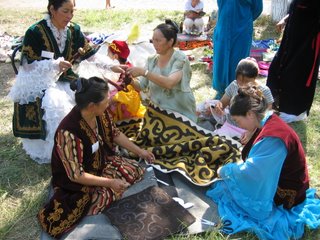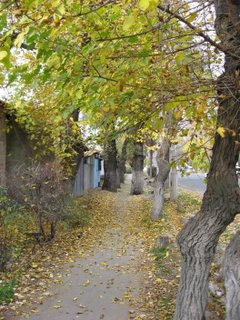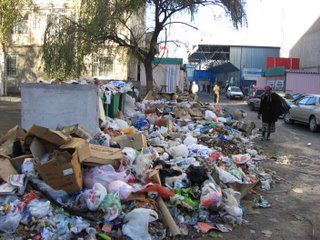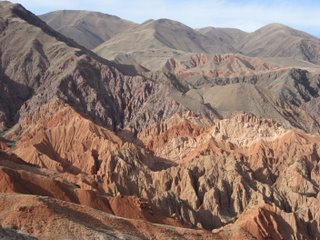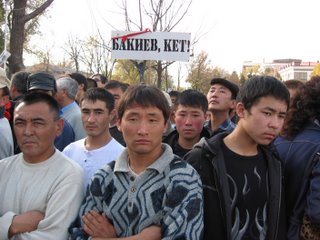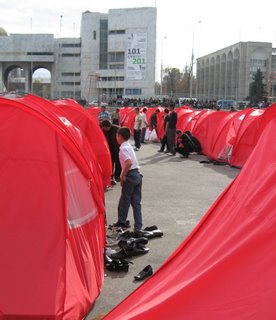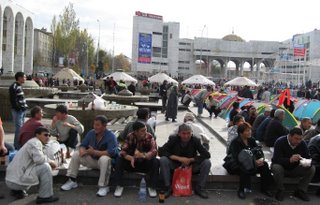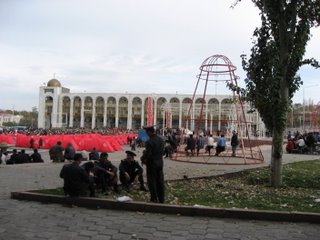
November 26, 2006
I’d intended to be in Portugal this week. But instead, I ended up staying here and experienced the first week of winter in Bishkek.
Cold air has settled down upon the city, making it unattractive to go outside or spend much time outdoors. And already, the streets and sidewalks have iced up, and they are never shoveled, plowed, sanded, or salted, making walking slow and difficult.
I’ve pulled out all my winter gear, have to bundle up when heading out, and seek to spend time where the heating works and it’s warm.
Along with winter comes the frequent sound of cars sputtering with the effort to overcome the cold. The call to prayer has become a sound of life, the same way it was in Osh. I heard it last night as I walked home in the evening, and found the rhythm soothing and haunting. When I heard it again upon waking at 6:30, it bothered me. In the darkness of early morning, it felt strange to have the Muslim music float through my apartment, an uninvited guest in my home.
The benefit of staying in town was that I got to celebrate Thanksgiving, not only once, but twice. An elegant buffet dinner at the Hyatt was followed two days later by a succulent meal home-cooked by a talented Texan. I had turkey and chicken, potatoes, stuffing, gravy, salads, and dessert. But best of all, cranberry sauce.
I’d intended to be in Portugal this week. But instead, I ended up staying here and experienced the first week of winter in Bishkek.
Cold air has settled down upon the city, making it unattractive to go outside or spend much time outdoors. And already, the streets and sidewalks have iced up, and they are never shoveled, plowed, sanded, or salted, making walking slow and difficult.
I’ve pulled out all my winter gear, have to bundle up when heading out, and seek to spend time where the heating works and it’s warm.
Along with winter comes the frequent sound of cars sputtering with the effort to overcome the cold. The call to prayer has become a sound of life, the same way it was in Osh. I heard it last night as I walked home in the evening, and found the rhythm soothing and haunting. When I heard it again upon waking at 6:30, it bothered me. In the darkness of early morning, it felt strange to have the Muslim music float through my apartment, an uninvited guest in my home.
The benefit of staying in town was that I got to celebrate Thanksgiving, not only once, but twice. An elegant buffet dinner at the Hyatt was followed two days later by a succulent meal home-cooked by a talented Texan. I had turkey and chicken, potatoes, stuffing, gravy, salads, and dessert. But best of all, cranberry sauce.








